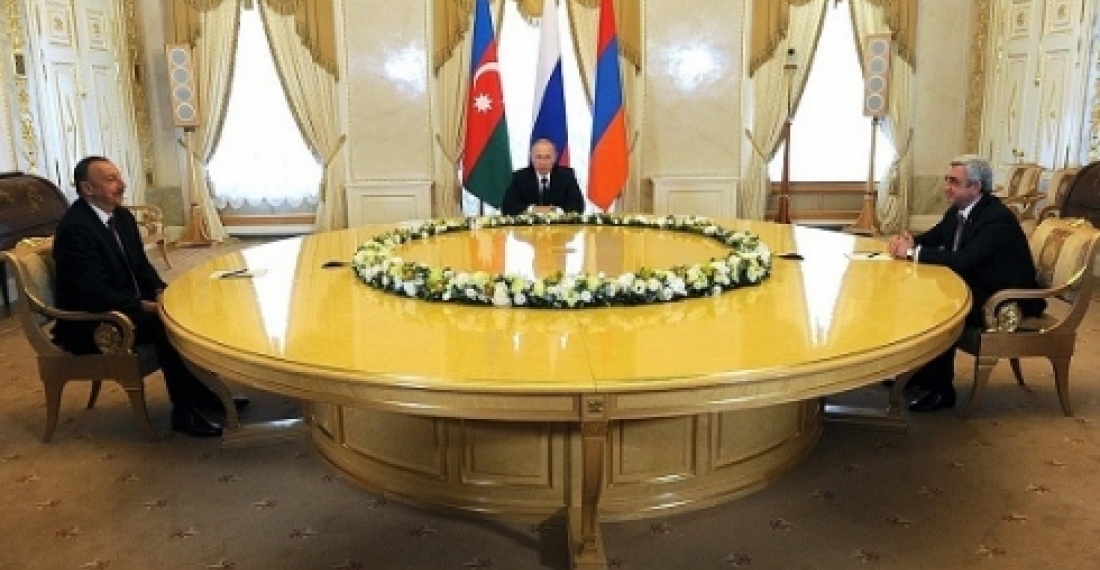A trilateral meeting between the Presidents of Russia, Armenia and Azerbaijan focusing on the Nagorno-Karabakh conflict took place on Monday afternoon in St Petersburg. Earlier Russian President Vladimir Putin held separate bilateral meetings with the two Presidents.
In a statement issued after the talks the three Presidents "noted the great importance of their regular contacts on the Nagorno-Karabakh problems and agreed to continue them in this format to supplement the work of the OSCE Minsk Group co-chairs who were invited to the final part of the St. Petersburg meeting". The Presidents stated that they reached mutual understanding on a number of issues the settlement of which will make it possible to create conditions for progress in the Nagorno-Karabakh settlement.
Following the meeting Russian Foreign Minister Sergei Lavrov said "Putin, Aliyev and Sargsyan have agreed on a trilateral statement that expresses the commitment towards a stable progress in political settlement". The Russian Foreign Minister added that the truce in Karabakh was maintained in the last days. "The Head of States have met without attendants and assistants," he added. Lavrov said that the three presidents had agreed to increase the number of OSCE monitors on the line of contact
In an unusually quick reaction the results of the St Petersburg meeting were welcomed by Azerbaijan Foreign Minister Elmar Mammadyarov. Mammadyarov was quoted by the Azerbaijani news Agency APA as saying that "the meeting was held in a constructive atmosphere. Azerbaijan welcomes the results of the talks in St. Petersburg". "We hope that this meeting will create an opportunity for progress in the Nagorno-Karabakh conflict soon" Mammadyarov said.
The meeting was also positvely assessed by the Armenian Foreign Minister Edward Nalbandian, although in somewhat more cautious terms. Armenian media outlets quoted Nalbandian as saying that "the meeting was quite useful and with certain care I can say that it was held in a constructive climate. The presidents realised that if they reach agreement on a range of issues, progress can be achieved in the [conflict] settlement".
Armenian media sources quoted Nalbandian as saying that further meetings will be held at the level of Presidents and Foreign Ministers, adding that "The process will take place in the format of the OSCE Minsk Group Chairmanship.".
The first reaction from the OSCE Minsk Group co-Chair, who were not part of the main meeting but were reported to have been invited in at the end, came from US OSCE Minsk Group Co-Chair James Warlick "Positive steps on #NKpeace at today's summit in St. Petersburg including a joint statement. We must work towards a negotiated settlement," he tweeted.
source: commonspace.eu with Azerbaijani and Armenian media sources.
photo: The Presidents of Armenia, Azerbaijan and Georgia at their meeting in St Petersburg on 20 June (picture courtesy of the Press Service of the President of Russia).






